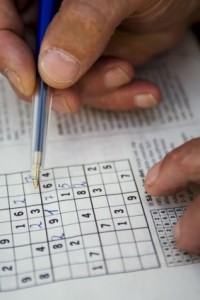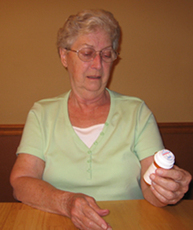People who engage in activities that exercise the brain, such as reading, writing, and playing card games, may delay the rapid memory decline that occurs if they later develop dementia, according to a study published in the August 4, 2009, print issue of Neurology®, the medical journal of the American Academy of Neurology.
The study involved 488 people age 75 to 85 who did not have dementia at the start of the study. They were followed for an average of five years; during that time 101 of the people developed dementia.
At the beginning of the study, people reported how often they participated in six leisure activities that engage the brain: reading, writing, doing crossword puzzles, playing board or card games, having group discussions, and playing music. For each activity, daily participation was rated at seven points, several days a week was rated at four points, and weekly participation was rated at one point.
The average was seven points total for those who later developed dementia, meaning they took part in one of the six activities each day, on average. Ten people reported no activities, and 11 reported only one activity per week.
The researchers then looked at the point when memory loss started accelerating rapidly for the participants. They found that for every additional activity a person participated in, the onset of rapid memory loss was delayed by 0.18 years.
“The point of accelerated decline was delayed by 1.29 years for the person who participated in 11 activities per week compared to the person who participated in only four activities per week,” said study author Charles B. Hall, PhD, of Albert Einstein College of Medicine in Bronx, NY.
The results remained valid after researchers factored in the education level of the participants. “The effect of these activities in late life appears to be independent of education,” Hall said. “These activities might help maintain brain vitality. Further studies are needed to determine if increasing participation in these activities could prevent or delay dementia.”
The study was supported by the National Institute on Aging.
 Source: The American Academy of Neurology




